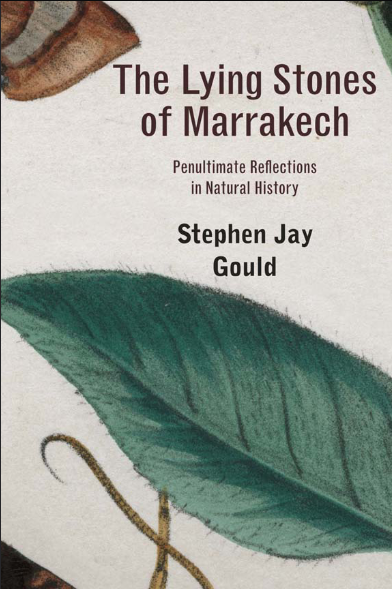Newly released
This book is new and will be uploaded as soon as it becomes available to us and if we secure the necessary publishing rights.

The Lying Stones of Marrakech: Penultimate Reflections in Natural History Book PDF
(0)
Author:
Stephen Jay GouldNumber Of Reads:
166
Language:
English
Category:
Natural ScienceSection:
Pages:
382
Quality:
excellent
Views:
1046
Quate
Review
Save
Share
New
Book Description
In his latest collection of essays, bestselling scientist Stephen Jay Gould once again offers his unmistakable perspective on natural history and the people who have tried to make sense of it. Gould is planning to bring down the curtain on his nearly thirty-year stint as a monthly essayist for "Natural History" magazine, the longest-running series of scientific essays in history. This, then, is the next-to-last essay collection from one of the most acclaimed and widely read scientists of our time. In this work of twenty-three essays, selected by "Booklist" as one of the top ten science and technology books of 2000, Gould covers topics as diverse as episodes in the birth of paleontology to lessons from Britain's four greatest Victorian naturalists. The Lying Stones of Marrakech presents the richness and fascination of the various lives that have fueled the enterprise of science and opened our eyes to a world of unexpected wonders.
Stephen Jay Gould
Stephen Jay Gould was an American paleontologist, evolutionary biologist, and historian of science. He was one of the most influential and widely read authors of popular science of his generation. Gould spent most of his career teaching at Harvard University and working at the American Museum of Natural History in New York. In 1996, Gould was hired as the Vincent Astor Visiting Research Professor of Biology at New York University, after which he divided his time teaching between there and Harvard.
Gould's most significant contribution to evolutionary biology was the theory of punctuated equilibrium developed with Niles Eldredge in 1972. The theory proposes that most evolution is characterized by long periods of evolutionary stability, infrequently punctuated by swift periods of branching speciation. The theory was contrasted against phyletic gradualism, the popular idea that evolutionary change is marked by a pattern of smooth and continuous change in the fossil record.
Most of Gould's empirical research was based on the land snail genera Poecilozonites and Cerion. He also made important contributions to evolutionary developmental biology, receiving broad professional recognition for his book Ontogeny and Phylogeny.[5] In evolutionary theory he opposed strict selectionism, sociobiology as applied to humans, and evolutionary psychology. He campaigned against creationism and proposed that science and religion should be considered two distinct fields (or "non-overlapping magisteria") whose authorities do not overlap.
Gould was known by the general public mainly for his 300 popular essays in Natural History magazine, and his numerous books written for both the specialist and non-specialist. In April 2000, the US Library of Congress named him a "Living Legend"
Read More
Book Currently Unavailable
This book is currently unavailable for publication. We obtained it under a Creative Commons license, but the author or publisher has not granted permission to publish it.
Rate Now
5 Stars
4 Stars
3 Stars
2 Stars
1 Stars
The Lying Stones of Marrakech: Penultimate Reflections in Natural History Quotes
Top Rated
Latest
Quate
Be the first to leave a quote and earn 10 points
instead of 3
Comments
Be the first to leave a comment and earn 5 points
instead of 3